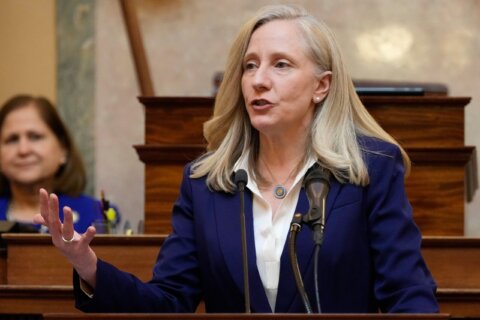Virginia Gov. Glenn Youngkin is trying to eliminate the state’s car tax as part of his proposed budget shared with some state lawmakers Wednesday.
Calling it the “single most-hated tax in Virginia,” Youngkin said “eliminating it permanently is complicated. Yet it is a very worthy aspiration.”
Under Youngkin’s plan, revenue generated from the car tax would be replaced with “a further increase in local sales taxes.”
The proposed budget calls for an increase in the state sales tax, from 4.3% to 5.2%, and a 12% cut in state income taxes that Youngkin said includes all tax brackets. It would cover the next two fiscal years.
“The car tax belongs in the trash can, not in your mailbox,” Youngkin said Wednesday.
Getting rid of the long-standing car tax would likely be popular, but it’s an unoriginal idea, according to Stephen Farnsworth, a political science professor at the University of Mary Washington in Fredericksburg, Virginia.
The tax was cut when Jim Gilmore was governor, but Farnsworth said it hasn’t been eliminated because doing so would require state leaders to find comparable revenue in other ways.
“The compromise then, and the way that the car tax has operated ever since, has been a lower system of taxation for this, but not getting rid of it entirely,” Farnsworth said.
The car tax is also inefficient, Farnsworth said.
“It would be much easier to increase the income tax or the sales tax to cover the revenue generated by the car tax, and reduce the complications of that process of separate billing and accounting and the rest,” he said. “It’s one of the things in the budget that would likely be very powerful, very popular, if it came to pass.”
Farnsworth described the car tax as “another bill that comes in the mail that you may or may not be able to pay when it’s due.”
The tax, formally called the tangible personal property tax, dates back to at least 1782, according to the Library of Virginia.








